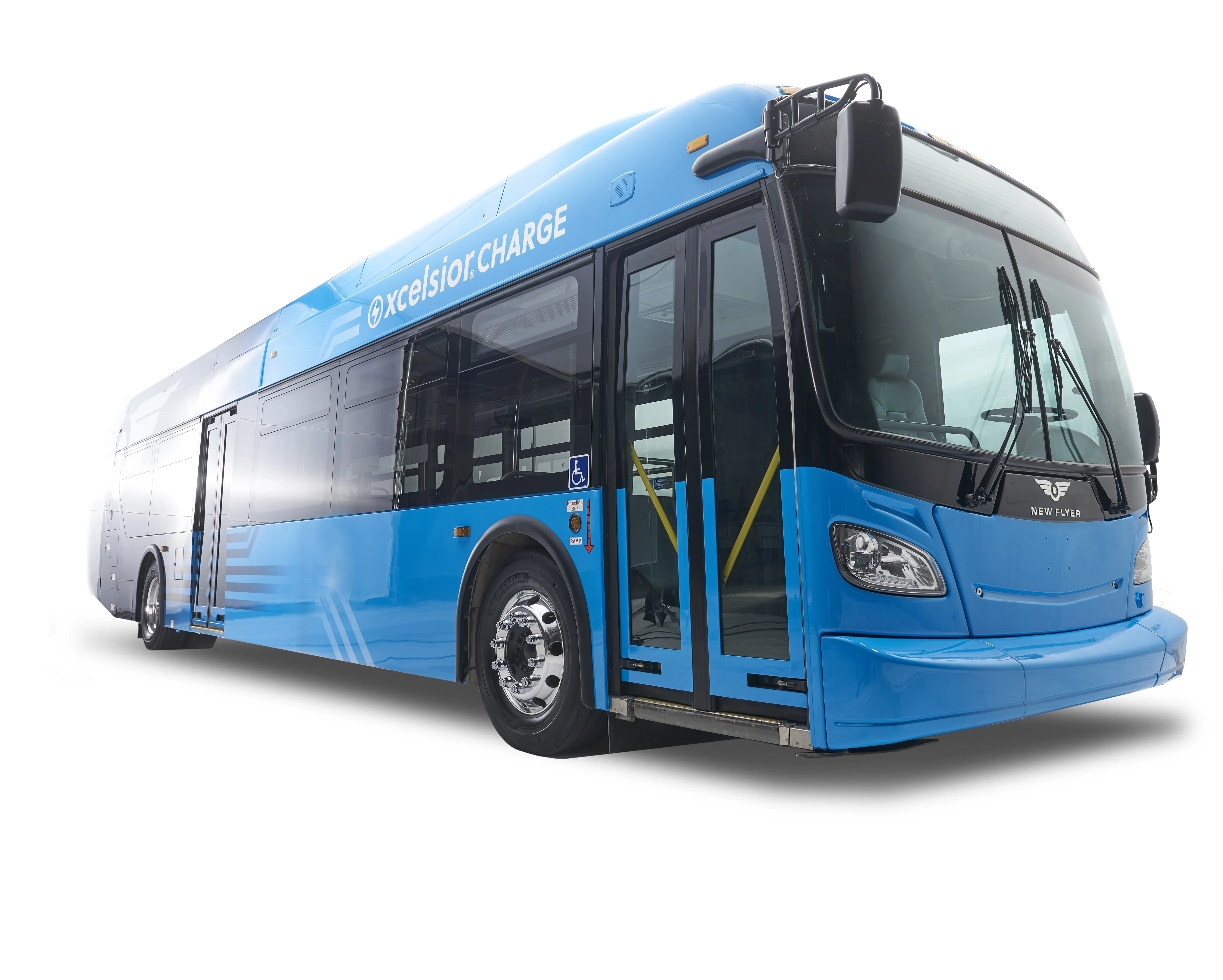The US Department of Transportation’s Federal Transit Administration (FTA) has announced the 20 transit providers in 13 states which will receive a share of US$55 million under its Low or No-Emission (Low-No) Bus Competitive Grant Program. The program provides funding for buses and related technology that replaces aging diesel fuel buses with battery-electric or fuel cell-powered vehicles and incorporates other innovations.
Among the projects selected to receive 2016 Low-No funding are the Santa Clara Va
July 27, 2016
Read time: 2 mins
The 324 US Department of Transportation’s Federal Transit Administration (FTA) has announced the 20 transit providers in 13 states which will receive a share of US$55 million under its Low or No-Emission (Low-No) Bus Competitive Grant Program. The program provides funding for buses and related technology that replaces aging diesel fuel buses with battery-electric or fuel cell-powered vehicles and incorporates other innovations.
Among the projects selected to receive 2016 Low-No funding are the Santa Clara Valley Transportation Authority of California which will purchase battery electric zero-emission buses and fast-charging stations, upgrade a maintenance facility and provide workforce training on maintaining new technology buses.
The Miami-Dade Department of Transportation and Public Works will receive funding to purchase 40-foot electric buses, which will replace part of a fleet that now has 70 per cent of its traditional buses operating beyond their expected useful life.
Park City Transit of Utah will receive funding to purchase zero-emission buses that will run on a bus rapid transit route and provide high-frequency service connecting major activity areas and giving residents and visitors a viable commuting option with cleaner, more fuel-efficient vehicles.
FTA awarded the FY 2016 funds after a competitive review of more than 100 applications. The grants allow agencies to acquire buses and supporting facilities and infrastructure such as maintenance facilities and recharging equipment – including new ‘en-route’ charging that extends battery life. Many agencies also use the grants to develop knowledge in their workforces about how to operate and maintain a new generation of buses.
Among the projects selected to receive 2016 Low-No funding are the Santa Clara Valley Transportation Authority of California which will purchase battery electric zero-emission buses and fast-charging stations, upgrade a maintenance facility and provide workforce training on maintaining new technology buses.
The Miami-Dade Department of Transportation and Public Works will receive funding to purchase 40-foot electric buses, which will replace part of a fleet that now has 70 per cent of its traditional buses operating beyond their expected useful life.
Park City Transit of Utah will receive funding to purchase zero-emission buses that will run on a bus rapid transit route and provide high-frequency service connecting major activity areas and giving residents and visitors a viable commuting option with cleaner, more fuel-efficient vehicles.
FTA awarded the FY 2016 funds after a competitive review of more than 100 applications. The grants allow agencies to acquire buses and supporting facilities and infrastructure such as maintenance facilities and recharging equipment – including new ‘en-route’ charging that extends battery life. Many agencies also use the grants to develop knowledge in their workforces about how to operate and maintain a new generation of buses.









